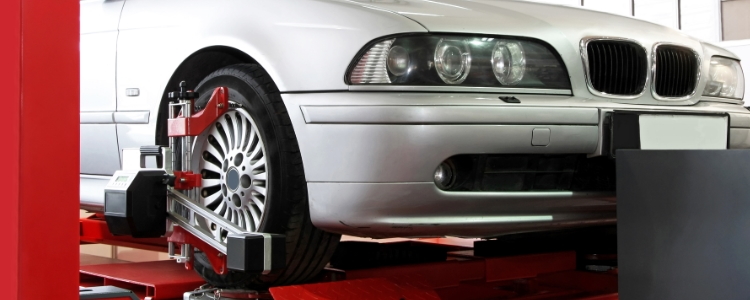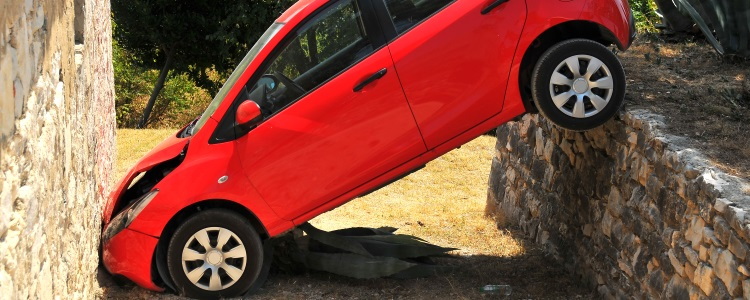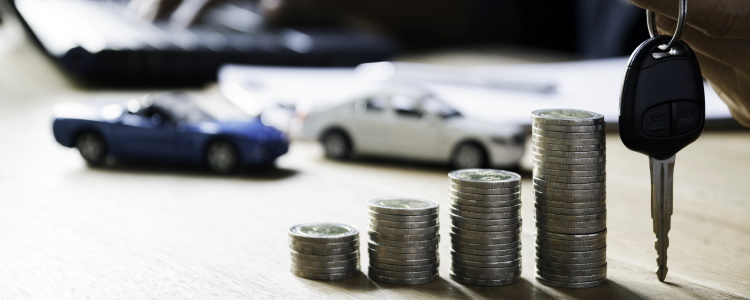If you're experiencing issues with your vehicle, there comes a point when you have to ask yourself, is it even worth getting this fixed? If you're not sure whether or not you should sink more cash into your car or start saving for your next one, we've got some pointers that could make your choice a little easier.
To Repair or Not to Repair
When it comes to getting your vehicle fixed, sometimes, there’s only so much you can do, especially if you're driving a car that's getting on in years. The average age of vehicles on the road across America is around 12 years old. That means there are a lot of people driving cars that have been on the road for over a decade!
So, how do you know whether it's time to trade in or keep up with the fixes? Ask yourself these five questionss to help you decide.
 Is your vehicle operation impaired or unsafe to drive? If a problem with your car is impairing operation and/or making it unsafe to drive, it's definitely important to take care of the issue so that you can take care on the road. If you can't safely drive your vehicle, get it checked out. It's the fix that could determine whether you sink the money into this car or your next.
Is your vehicle operation impaired or unsafe to drive? If a problem with your car is impairing operation and/or making it unsafe to drive, it's definitely important to take care of the issue so that you can take care on the road. If you can't safely drive your vehicle, get it checked out. It's the fix that could determine whether you sink the money into this car or your next.- Is the vehicle under warranty? This seems like a no-brainer, but if you have the right warranty coverage, getting an issue fixed can be the right choice. Even if you ultimately decide you need a newer car down the road, if you have a fixable issue that's covered under a service you already pay for, such as an extended warranty, it can help you patch things up so you have a little longer to save.
- Is the repair covered? Whatever is wrong with your vehicle, there isn't a guarantee that a particular issue is covered under warranty. Warranties aren't one size fits all, so if you're having a drivetrain issue and only have bumper-to-bumper coverage, you need to check with your service provider first to see if your issue is something that's covered.
- Is the repair more than the car is worth? If you find out that whatever issue your vehicle is having potentially costs more than the current trade-in or book value on your car, you may want to consider investing in your down payment savings for your next vehicle. If you can patch things up cheap and keep driving safely, it might be worth it to fix it. But if you can't safely drive until a major fix is performed, weigh your options carefully.
- Can you realistically get another car? It can be troubling if you know it's time to start the transition to another vehicle, but aren't sure you have the means to do it. Often, this comes down to whether or not you can get an auto loan. If you're driving a used car and it's time to put it out to pasture, you might have more options than you know when it comes to getting into your next auto loan.
Don't Leave Yourself Guessing
If you're not sure whether or not to sink any money into vehicle repair, you need to ask yourself if this fix would change anything about the way your car drives or your ability to drive it safely. All vehicles experience wear and tear over their lifetime. Typically, regular maintenance can help you reduce the need for major repairs, but the older a car is, the more chance there is for a breakdown.
If the cost to repair is more than the value of your vehicle, it might be time to throw in the towel. However, many repairs can be covered under warranty, which helps you pay for the cost of major repairs when you pay a monthly premium.
New cars come with standard manufacturer warranties, but used vehicles can get coverage, too. The coverage you can get for a used car is called an extended warranty, or vehicle service contract, which are sold by independent insurance agents or third-party companies. They're also often offered to you at the dealership if you're taking out a loan.
Extended warranties are great for peace of mind, and can save you money when it comes to out-of-pocket repair costs. However, a service contract may not pay for itself, or sometimes even be needed at all. Whether or not the cost is worth it to you depends on the type of person you are.
Finding the Solutions You're Seeking
If you can't deny any longer that the time has come for a new car, but are worried about your credit situation standing between you and an auto loan, don't be! There are plenty of car loan options available, even for people whose credit has seen better days.
When you need an auto loan, your first step should always be checking your credit reports and getting your credit score. If you don't know where you stand, you won't know which option offers the better solution for you.
After you know what your situation looks like, you can determine where to start looking for your next car loan. Here's a look at three main options:
- Direct lenders – Banks, credit unions, and some online lenders are direct lenders. This means you apply directly with the financial institution, and once approved, you receive a check or approval letter which entitles you to spend up to a certain amount. This is often referred to as pre-approval, and it can be a great bargaining tool. However, it can also be more difficult to qualify for this type of financing with poor credit because these lenders tend to base eligibility heavily on your credit score.
- Subprime lenders – Subprime lenders specialize in helping consumers with bad credit. They're indirect third-party lenders that work with special finance dealerships. Subprime lenders have the means to assist people in many unique credit situations, including bad credit and no credit. These lenders don't rely completely on your credit score, but it can factor into their decision. You also don't meet directly with the lender, the special finance manager at the dealer acts as your go-between.
- In-house financing dealerships – In-house financing dealers go by many names, including buy here pay here and tote the note dealerships. With this type of loan, the dealership is the lender, so they don't use third-party information such as your credit reports when evaluating you. Typically, in-house financing lots rely on your income and a down payment to get you into a car.
Of these options, subprime lenders are often the best choice for consumers with bad credit. Not only do they generally provide the best chance at an approval, they give you the opportunity to repair your credit score with on-time loan payments. It can be hard to get approved with a direct lender with bad credit, while some in-house financing dealerships don't report their loans to the credit bureaus, but subprime lenders do.
Why Subprime Auto Loans?
Subprime car loans come from indirect lenders that cater to less than perfect credit situations. These lenders provide auto loans to people who are in tough and unique credit situations, and/or those who've been turned down by traditional lenders at their bank or credit union. They work with a wide range of dealer special finance departments, which gives you a wider range of potential car loan and vehicle options.
Depending on your situation, you could qualify for an affordable new car, a certified pre-owned vehicle, or a used one. If you do get approved, an auto loan gives you the opportunity to build your credit over time with each on-time loan payment you make. When these payments get reported to the major national credit bureaus, they help build a positive payment history, which makes up 35% of your total credit score.
Ready to Make Your Choice?
If the repairs just aren't worth the cost, it may be time to trade in your vehicle toward something more reliable. If you aren't sure where to start looking for your next car, you don't have far to go – we can assist you right here at Auto Credit Express!
We've gathered a nationwide network of special finance dealerships that work with subprime lenders to get bad credit borrowers into the auto loans they need. If you're looking to get over your credit obstacles, just fill out our free car loan request form, and we'll get to work matching you with a local dealer!
















